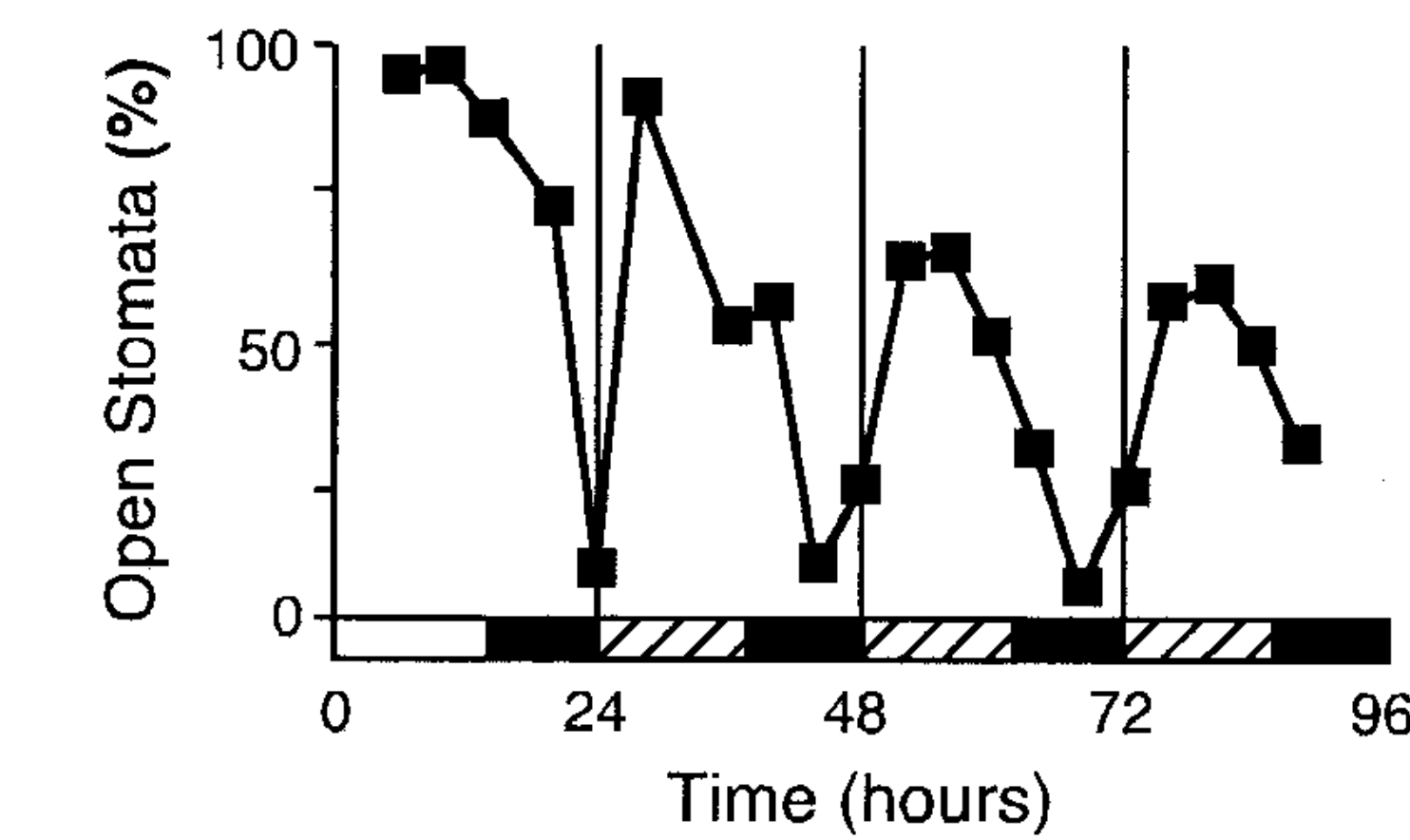(CIE A2 biology) Homeostasis - stomata + guard cells
Guard cell/stomata basics
Guard cells control the way the stomata on leaf surfaces open + close to regulate water loss
They’re heavily involved in this way in transpiration + gas exchange w/ the stomatal apertures having a daily rhythm to them where they’re all closed at midnight and mostly open in the earlier hours due to changes in photosynthesis and transpiration rates (see graph below)
Reminder: transpiration rates are directly proportional to temperature and wind speeds but inversely proportional to humidity

Stomatal opening mechanism specifics
ATP synthase gets activated at higher temperatures/brighter light levels/higher water levels to increase ATP production within the guard cells’ chloroplasts
H+ ions then get pumped out of the guard cells into the surrounding epidermal cells by hydrogen pumps in the guard cells’ cell walls (thus leaving a negative charge in those cells)
K+ ions then diffuse into the guard cells via the plasma membranes’ proton channels to maintain an electrochemical gradient - Cl- ions also diffuse into the guard cells after that
Water then diffuses into the guard cells by osmosis down a water potential gradient thus resulting in more turgid guard cells
The increased turgidity of the guard cells is what leads to the stomata opening - the same stomata close once the guard cells become more flaccid again